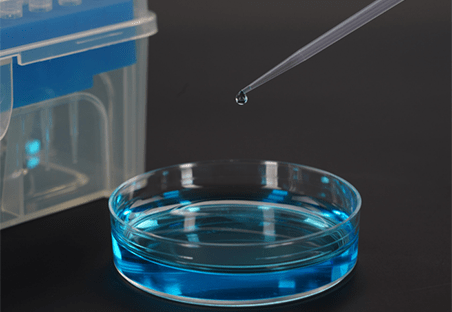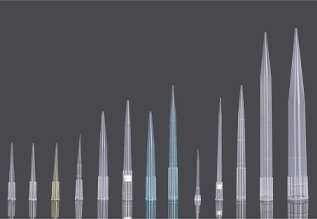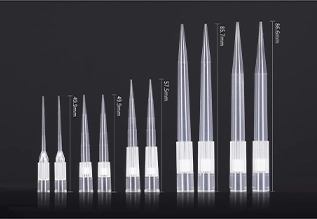Pipette tips are discarded pipette attachments used in lab settings. It’s kind of lab consumable. They are employed for the precise transfer of tiny liquid volumes, from milliliters to microliters. To suit different pipettes and applications, pipette tips are typically made of plastic or polypropylene and come in a variety of sizes and styles. It is crucial to understand the correct pipette tip disposal techniques to guarantee lab worker safety, preserve the environment, and adhere to legal requirements. Labs can help create a world that is safer and more sustainable by disposing of waste properly.

Why Dispose of Used Pipette Tips are Important?
Containers for disposing of pipette tips are necessary equipment for keeping a clean and safe lab environment. They are essential for avoiding contamination, safeguarding lab workers, and making sure environmental rules are followed. Here’s a detailed explanation of why pipette tip disposal containers are so important:
- Preventing Contamination
In laboratories, pipette tips are frequently used to transfer small volumes of liquids, such as samples that contain radioactive materials, hazardous chemicals, or infectious agents. If not handled properly, used pipette tips may harbor hazardous materials, thereby posing a significant risk of contamination. By offering a safe and leak-proof enclosure for used tips, pipette tip disposal containers help to keep contaminants out of the environment and off of lab surfaces.
- Protecting Laboratory Personnel
Laboratory personnel are more vulnerable to infections, chemical burns, and radiation exposure when pipette tips are not disposed of properly. Disposal containers for pipettes act as a barrier to reduce the chance of unintentional contact with contaminated tips. They also lessen the possibility of spills or accidents by keeping the workspace tidy and orderly.
- Ensuring Compliance with Environmental Regulations
There are strict environmental regulations governing the disposal of hazardous waste, which includes used pipette tips. Disposal containers for pipette tips are made especially to comply with these rules, guaranteeing that hazardous materials are handled and disposed of in an ecologically responsible manner. Protecting the environment and public health, they aid in preventing the release of pollutants into soil, waterways, or the atmosphere.
- Promoting Proper Waste Segregation
Disposal containers for pipette tips help with appropriate waste segregation by preventing used pipette tips from getting mixed up with other waste. To properly treat and dispose of hazardous waste and keep non-hazardous waste streams clean, segregation is essential.
- Maintaining a Safe and Efficient Laboratory Workflow
Containers for disposing of pipette tips help ensure a secure and productive workflow in the lab. They offer a specific spot for used tips, doing away with the mess and possible risks that come with having discarded tips lying around the office. Additionally, it saves time and effort so that lab staff can concentrate on their work rather than worrying about disposing of waste all the time.
- Promoting Laboratory Safety Culture
A strong laboratory safety culture is evident in the use of pipette tip disposal containers. It shows that you are dedicated to reducing risks, safeguarding employees, and following environmental laws. This pledge encourages a responsible and aware attitude toward safety across the board in the lab.

What Are the Risks of Improper Pipette Tip Disposal?
- Contamination of the environment:
Reused pipette tips can release hazardous substances or infectious material into the environment, which could be harmful to both humans and animals. If used to handle samples containing pathogens, such as bacteria, fungi, or viruses, used pipette tips may harbor infectious agents. These pathogens can enter the environment through improper disposal, such as throwing tips in open trash cans or failing to sterilize them first. Diseases that affect people, animals, or plants may spread as a result of this.
- Exposure to hazardous materials:
Laboratory workers and other individuals can come into contact with harmful substances like toxic chemicals or infectious agents if used pipette tips are not disposed of or handled properly. Chemicals that are toxic, radioactive, or contain infectious agents can all be found in used pipette tips. These infected tips pose a risk of contamination to anyone working nearby if they are not disposed of appropriately. They may leak their contents onto lab surfaces.
- Spread of diseases:
Infectious material from used pipette tips has the potential to spread diseases to people and animals if disposed of improperly.
What are the Proper Pipette Tip Disposal Methods?
- Autoclaving
Microorganisms are killed by the heat sterilization process known as autoclaving. After using a pipette tip, place it in an autoclave bag and autoclave it according to the procedures in your laboratory. One popular and very efficient way to get rid of pipette tips—especially ones that are contaminated with infectious microorganisms—is to autoclave them. This eco-friendly, practical, and safe method of disposal guarantees that pipette tips are completely sterilized.
- Chemical disinfection
If autoclaving is not feasible, the pipette tips can choose chemical disinfection. Make use of a disinfectant that has been approved by the regulatory body or your laboratory. Indulge the pipette tips for the recommended duration of 10 to 30 minutes in the disinfectant solution.
- Incineration
Organic materials are destroyed through the high-temperature combustion process known as incineration. Used pipette tips can be disposed of in the incinerator in your laboratory if one is available. Ensure that the incinerator is run and maintained correctly to stop dangerous pollutants from escaping.

Conclusion
It is not only convenient to dispose of used pipette tips properly; it is also an essential component of environmental stewardship and laboratory safety. Labs can greatly lower the risk of contamination, safeguard their staff, and help create a world that is healthier and more sustainable by adhering to proper disposal procedures. Scopelab is a top provider of consumable lab supplies, with a broad selection of superior products. Our products meet industry standards and have been customized to meet the unique needs of laboratories across multiple disciplines. Please contact us for more details.




